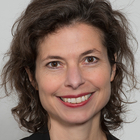Municipal development policy in Germany: current status and prospects
Wingens, Christopher / Paul Marschall / Eva DickBriefing Paper (17/2021)
Bonn: German Development Institute / Deutsches Institut für Entwicklungspolitik (DIE)
DOI: https://doi.org/10.23661/bp17.2021
Dt. Ausg. u.d.T.:
Kommunale Entwicklungspolitik in Deutschland: Stand und Perspektiven
(Analysen und Stellungnahmen 4/2021)
German municipalities are getting increasingly involved in development policy work in Germany and abroad, with the nature of that involvement becoming ever more diverse. However, very little is known about the background or the type of these activities.
Against this backdrop, the German Development Institute / Deutsches Institut für Entwicklungspolitik (DIE) has conducted a study of municipal development policy (MDP) in Germany. Financed by the Service Agency Communities in One World (SKEW) of Engagement Global, this research drew upon a previous study carried out by DIE in 2009 (Fröhlich & Lämmlin, 2009) with the aim of identifying the current status of and trends in development for this policy area. To this end, DIE collaborated with the German Institute for Development Evaluation (DEval) to conduct a survey of municipalities throughout Germany. In addition, semi-structured qualitative interviews were held with representatives of municipalities and relevant national and federal-state institutions.
As the results show, involvement in MDP on the part of German municipalities is increasing in the context of enabling national policies and changing frameworks for international cooperation (e.g. 2030 Agenda). Large municipalities engage far more often in development policy than small municipalities. The latter often focus on low-threshold activities with fewer requirements for project management, such as the promotion of fair trade. In a number of cases, small municipalities carry out projects based on inter-municipal cooperation.
MDP covers many different topics, from information and education work to diverse forms of partnerships with municipalities in the Global South. The number and variety of stakeholders involved in the municipal administration partnerships are increasing, along with the functions they carry out. Municipalities serve as implementing agents, facilitators and networkers. They are partly motivated in their international work and corresponding activities by self-interest. Their involvement, for instance, may allow them to take on international responsibility or increase their appeal as an employer to new recruits.
Development policy is a shared responsibility of the German national government, federal states and municipalities. MDP is a voluntary municipal activity and is thus not practised everywhere. Human resources are often insufficient and the required knowledge is difficult to obtain. In some cases, municipalities consider the expenditure associated with the management of MDP projects to be too high.
Nonetheless, municipalities make a key contribution to transnational sustainability policy through their work, most especially by enabling global objectives to be localised and/or contextualised. One of the specific benefits of MDP is its proximity to citizens and direct contact with local stakeholders in Germany and abroad. However, when measured using conventional metrics and indicators for development cooperation (such as Official Development Assistance, ODA), the municipal contribution is still insufficiently discernible. It is important to continue providing support to municipalities, with as little red tape as possible, in order to fully exploit the potential MDP has in municipalities that are already involved in this work and those which are not yet involved.


